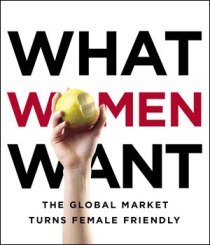RAPE CULTURE:
Over the weekend, the Columbia Missourian published a story about one woman’s struggle after she was raped a few months ago, written by Roseann Moring, a good friend of mine. Fair warning, it has some disturbing details.
“It’s like they’re nothing,” she said. “It’s like they’re a ghost.”
Even so, she sees constant reminders of that night. In a college class, when she looked at the sentence, “She didn’t remember what happened last night,” she couldn’t think about grammar. She thought about being raped. She now notices how many jokes center on rape and violence — in casual conversation, in movies, in books.
Those things never registered before. Now they seem to be everywhere. “I was so oblivious, and I think everyone is,” she said.
 This girl’s story is all too common, especially on college campuses like Mizzou, from which J. (the moniker given to the victim in the story) just graduated. J. dealt mostly with Columbia city police, not campus police, but there’s little doubt that issues of sexual assault are an aggravated problem in college communities.
This girl’s story is all too common, especially on college campuses like Mizzou, from which J. (the moniker given to the victim in the story) just graduated. J. dealt mostly with Columbia city police, not campus police, but there’s little doubt that issues of sexual assault are an aggravated problem in college communities.
In the last five years, none of the sexual assaults reported at Mizzou have been prosecuted, to say nothing of those that went unreported (the government estimates that only 36% of sexual assaults are reported, and about 20% of college-aged women will encounter sexual assault). And that isn’t unique to Mizzou:
It’s also the norm around the country, according to a recent 12-month Center for Public Integrity investigation. The center found a host of institutional barriers for people who report sexual assault on campuses. It said that official campus assault statistics often don’t jibe with the number of assaults reported to campus organizations, such as victims advocacy groups.
It also found that many serial rapists went unpunished, and even when campus judicial services found guilt, punishment was weak.
At the heart of the matter is the question of consent. Victims’ advocates’ definition of that word differs greatly from that of the law. And cultural biases about sexual assault find their way into jurors’ thinking, further complicating prosecutors’ jobs.
The result is a minuscule prosecution rate for sexual assault.
Also check out Jezebel’s two cents about the process of reporting rape, especially on campuses, which can sometimes be almost as traumatic as the rape itself.
For us at SAFER, this directly speaks to the need for university health centers/sexual assault crisis centers to at least have this information easily accessible to students, if they can’t/won’t provide the drugs themselves. But it’s clearly a problem that is larger than the university system, which is equally frustrating.
…To be honest, I have a really hard time knowing how to frame stories like this. It’s hard to balance the fact that, as Haden said, “J.’s experience, though frustrating, is normal,” with not wanting to discourage people from reporting sexual assaults.
I’ve learned a lot about rape and the issues surrounding it since Roseann started working on these articles. While I’d thought about rape before, of course, I’d never had so many frank discussions about it. I’ve learned, for example, that not only is prosecution unlikely, but so are consequences from universities themselves. And the process of even trying for retribution can be horrific. Sometimes, at Mizzou anyway, victims are asked to go through a “mediation” where they sit down with the accused attacker and talk about the situation as part of the university justice process. That may be fine if someone stole your bike, but not so much if they raped you. That doesn’t happen all the time, but it’s just an example of how systems of justice fail sexual assault victims. There’s a reason why two thirds of them stay silent.
Those frank discussions Roseann and I had were really necessary in helping her keep some of her sanity during her months of research — something I wouldn’t have the mental stamina for — but I don’t think they take place nearly enough in other contexts. Rape isn’t something people talk about until it comes up in some other way, like you know, because of a newspaper article. But if you take the initiative to start that conversation in a room full of women, I’ll bet the prevalence of sexual assault will become immediately apparent.
Personally, I was shocked by the number of women who admitted to being a rape victim after I brought it up. Once I broached the subject, the stories came tumbling out, as though these women had just been waiting for someone to ask. They were usually tragic tales, and they were important.
Maybe if those conversations happened more, and in rooms filled with men as well as women, it would help turn around the dire situation on college campuses and elsewhere. Seriously. Even you, now, reading this. You might have a story you don’t tell either. I just heard two new ones from people I work with at AS. What is happening. You know? Just why is this happening.
(@jezebel, @columbiamissourian)
PROM:
Does Prom Matter to Gay Teens? Obviously to some it does. (@jezebel)
ELLEN DEGENERES:
Gary McCullough thinks that Ellen ruined American Idol. “After all, what successful television producer could have a clue what wholesomeness is as long as they see promoting homosexuality as a virtue.” Really? Well I think Gary McCullough ruined jellybeans. What now. (@earnedmedia)
KIANA FIROUZ:
is an LGBT activist and film director from Iran currently seeking asylum in the UK. Her application has been turned down and she’s now facing deportation back to Iran, where homosexuality is viewed as a punishable sin. Learn more and sign the petition, tell your friends, watch the NSFW trailer for her movie below. (@racialicious)
SEX TAPES:
Everybody has a lesbian sex tape! Kendra Wilkinson! Nicki Minaj! Probably even your mom! Wanna speculate what an “incredibly hardcore lesbian sex scene” could consist of? Like, Big Bird costumes? Vampire teeth? Bowling balls? (@associatedcontent)
WEIGHT:
A new study finds that Whole Foods shoppers are slimmer than those who shop at other chains. “That’s likely because people willing to pay $6 for a pound of radicchio are more able to afford healthy diets than people stocking up on $1.88 packs of pizza rolls to feed their kids.” (@jezebel)
JOBS:
The Young and The Feckless: Nothin’ But Net(working) “What I want to know and what is never addressed by those who champion the power of leveraging your connections for employment aid is what about young people without networks? What are they supposed to do?” (@bitch)
BUTCH BROOKLYN:
Mark your calendar for Sartorial Summer: A Butch Fashion Show & Dance Party Wednesday night! Booze and bake sale starts at 7pm and I know you want in on that. (@queerfatfemme)
WHAT WOMEN WANT:
 In his new book, [What Women Want] Paco Underhill, a longtime student of consumer behavior, evinces a particular aversion to the word woman. He prefers instead “the female of the species” or “the female of the household” or “the female of the house.” The female of the species, we learn, behaves in a specific, predictable way in hotel lobbies. The female of the species feels about her kitchen the way the male feels about his car. The female of the species prefers certain species of things; for instance, she does not like cookie-cutter mansions, which, “as a species,” convey “aesthetic bankruptcy.” (@bookforum)
In his new book, [What Women Want] Paco Underhill, a longtime student of consumer behavior, evinces a particular aversion to the word woman. He prefers instead “the female of the species” or “the female of the household” or “the female of the house.” The female of the species, we learn, behaves in a specific, predictable way in hotel lobbies. The female of the species feels about her kitchen the way the male feels about his car. The female of the species prefers certain species of things; for instance, she does not like cookie-cutter mansions, which, “as a species,” convey “aesthetic bankruptcy.” (@bookforum)
TRAFFIC:
South Florida road signs were hacked to display racist messages (@gawker)
DAN SAVAGE:
Dan Savage Does Not Have the Solution to Homophobia in Malawi. (@womanistmusings)
Over time I have come to loathe Dan Savage for his racist, ableist, fat phobic and sexist language. Though Savage is oppressed as a gay man, he seems to forget that he has plenty of privilege. Not only is he White and male, he is also able bodied and cis gendered, has class privilege, western privilege, thin privilege, etc and etc. For all of the oppression Dan Savage faces as a gay man, he certainly exists with enough power to make the lives of others a living hell. There seems to be this need for marginalized bodies to find someone else to oppress, in an effort to avoid becoming the bottom tier of the social hierarchy.
The couple have been misidentified as a gay couple (an error his royal highness did not see fit to correct). Tiwonge Chimbalanga identifies as a woman, and that means that this relationship is a heterosexual one. The issue here is that Malawian government does not recognize her gender identity and has misidentified it as a gay relationship.
JULIE GOLDMAN & THE GAY PIMP:
The Gay Pimp does a show with our favorite woman alive, Julie Goldman. Huzzah for Lesbos! (@gaypimp)
TILA:
Look, we’re not talking about this. We’re just going to say, maybe this explains a few things. Maybe. Tila. Ambien. Snorting. Celebrity Rehab. (@radar)








Comments
The writer at Womanist Musings sure has a lot to say about Dan Savage. Her posts about him have got me thinking and I know he’s not perfect, but damn! I think every action (or in his case, column or blog post) can be analyzed and found to be racist, classist, anti-fat, anti-skinny, transphobic — you name it — in some way or another. Maybe I’m just attached to Dan Savage? I think Womanist Musings’ post is over the top, just like Dan Savage is over the top. He reacts emotionally, but don’t we all?
I agree with you on all points.
I fail to see how he’s as sexist (for example) as some people claim. Is it because he doesn’t like vaginas? He’s a gay guy. It’s like calling someone a man hater if they say they don’t like penises.
Totally agree with you guys. The poster at Womanist Musings makes a lot of unsupported accusations against Dan Savage. It seems like she’s coming at it with a very anti-Savage mentality, and then just uses this one example of his characteristic hyperbole to justify her larger dislike.
Is Savage unnecessarily harsh sometimes? Sure. But he also makes a point of listening to his readers and engaging in meaningful dialogue with them, and this sometimes includes admitting he’s wrong.
That poster runs the risk of drowning in her own self-Righteousness.
First, I should say that I am a huge Dan Savage fan, I listen to his podcast and read his columns, although I obviously don’t agree with 100% of what he says (mostly his fatphobic comments).
That being said…
What I don’t get is how he was supposed to *know* that half of that couple is transgendered, since I certainly didn’t know it until now because it isn’t being reported in the mainstream media? Seems like this is based off a couple of eyewitness accounts that haven’t made it out into the public eye that much…
This conversation about rape on college campuses (and in general) is so important, and I’m so glad this post exists. I can testify that the environment for rape victims at American universities is absolutely terrible, that no one talks about it, and that once you do bring it up it’s heartwrenching how many people have had this experience. Props to Roseann, and to you guys for writing this.
agreed. the vast majority of women i know have similar stories to share. i wish they didn’t.
American universities sound scary.
To be fair, nothing ever happened to me. (Sometimes I feel like I must be the minority!)
I’m gonna take the low road here and only acknowledge the non-acknowledgement of Tila Tequila.
How the fuck does a sleep aid make you manic?
That’s mostly a statement of condescending doubt, but on the chance I’m wrong in my assumption that this is impossible, I’d love a legitimate explanation.
if you take ambien and overcome the part where it’s supposed to put you to sleep, then you move into this new stage where you do insane things you can’t remember in the morning. I have several blog posts that are evidence of this.
omg riese YES. i hallucinated a tiny asian woman in a kimono in a hotel bathroom one time in 2004. but i knew she meant me no harm.
that why this is maybe my fave cartoon ever:
http://www.toothpastefordinner.com/062209/ambien-walrus-says-lets-do-this.gif
Sounds like a great party.
When I saw this comment on the 10 recent comments feed on the homepage, right under the article headline… it looked really inappropriate.
That sounds terrifying.
I’m not even mad that I got put in check because it was by Riese.
This female of the species wonders whether Mr. Underhill is talking about human women or wild cockatoos.
I think Joyce Carol Oates or someone wrote a collection called The Female of the Species about like badass women murderers or something. Or I could have made that up! Whatever Joyce Carol Oates is great.
That totally reminds me of the part in Curious Wine where Diana tells some jock that her name is Joyce Carol Oates.
Hey, thanks, Sarah! This is a really nice post!
this is so important. i have nothing to say right now that hasn’t already been said. i just want to say this is a great post, this is so important, and thank you.
Does anyone remember that song from the 90s? “The female of the species is more deadly than the maaalllleee….”
Yeah, that’s FIRMLY IN MY HEAD NOW THANKS
Arrrgh, I remember that song as part of mid-90s britpop explosion. Actually, I remember hearing everyone at school singing it before I had heard the record, then when I heard the song itself it seemed not so great as I’d have imagined. Possibly the first time in history that a group of raucous off-key schoolgirls’ warblings had surpassed a professional recording in my estimation.
Anyway, curse you for also getting that song stuck in my head, which means I’m going to be going through a whole Best of Britpop soundtrack in my head for the rest of the evening. I can hear the opening strains of Common People now…
It makes me so uncomfortable to see and know that my school, a place that I love, is home to such a horrible and reoccurring nightmare.
However, the students at Mizzou are realizing that we can’t just sit back and take this lightly. Students Together Against Rape and Sexual Assault (or STAR) have developed a new program called Green Dot which is not only a symbol, but an educational tool available to students, faculty and community members. There are training sessions on not only statistics, but strategies to STOP sexual assault before it turns into a dangerous situation. Green Dot and STAR are trying to bring this into conversation and make people talk about it.
The importance of preventing and, ultimately, stopping sexual assault and rape on campuses across the US is through education. Many people don’t know how to stop it and they’re terrified of getting involved. If we can learn to recognize the signs, learn how to protect others and learn how to protect ourselves, we can move forward as a school community.
The Green Dot Program was actually initiated at the University of Kentucky. UK’s Violence Intervention and Prevention Center provides trainings for other schools that are interested in adapting the program for their campus. (I wrote a paper on this program for a class last semester, hence the information). It’s awesome that STAR has taken on this program and is trying to address the issue. It’s something that I would like to implement on my campus here in Michigan. We have very little programming related to sexual assault or domestic violence, despite the great efforts of our Women’s Resource Center.
As a survivor myself, I think that Take Back the Night rallies are also a fantastic way of supporting those who have lived through such a violating experience. Seven years after my assault, I just participated in my first rally this year and it was life changing. Having a forum for survivors to tell their stories is crucial!!! If we break the silence, we can start the change!
Oh! You’re right. Thanks for correcting that :)
Also, I am incapable of saying anything about rape on college campuses that hasn’t already been said due to rage and sadness, but any SF Bay Area folks interested in doing SOMETHING can check out SFWAR (San Francisco Women Against Rape) – they do great work.
http://www.sfwar.org/
I’ve fortunately never been raped. However, I still feel sick to my stomach and SO angry when I hear the stories of women, whose lives have been irreversibly changed because of it.
Anger then turns to boiling rage knowing that so many offenders get away with it, hearing about how cases are totally mishandled, and worse, how some victims are blamed for the act. ARGH!!!